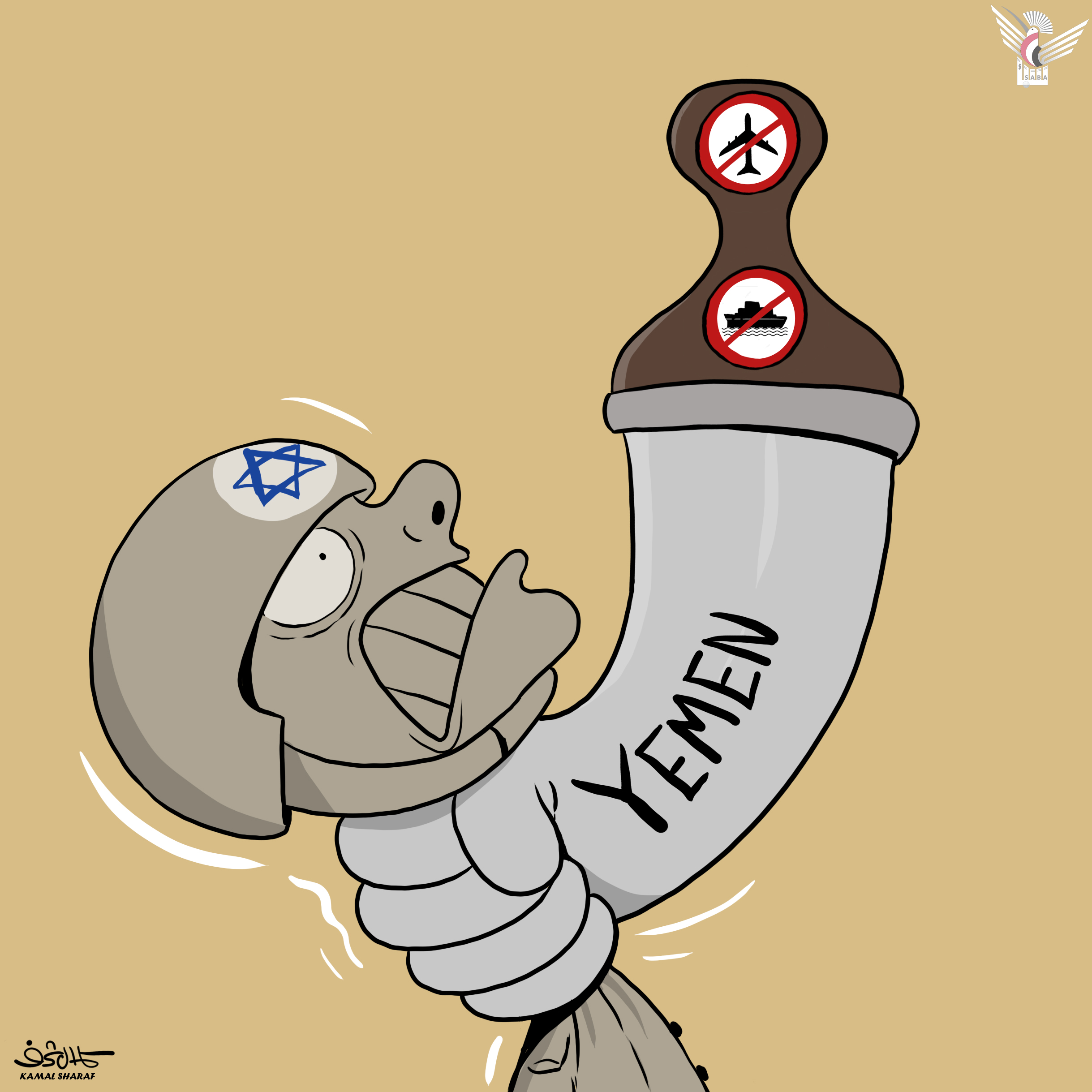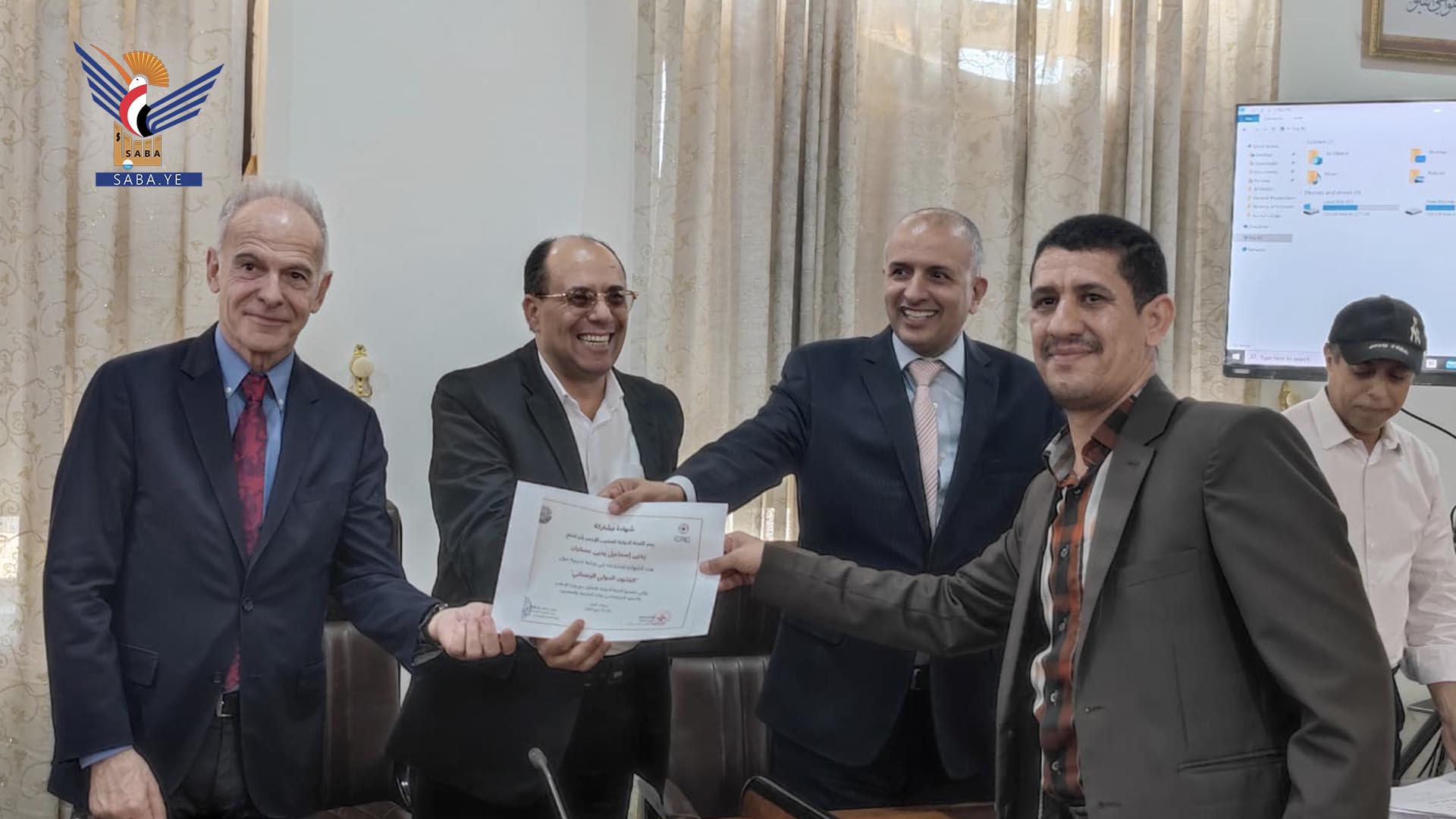Sana'a - Saba:
The Deputy Minister of Information, Dr Omar Al-Bukhaiti, stressed the need to qualify and train the cadres of media institutions in international laws, especially international humanitarian law, and familiarise them with its principles, foundations and objectives.
At the conclusion of a course on international humanitarian law, organised by the International Committee of the Red Cross (ICRC) in cooperation with the Ministry of Information and the Diplomatic Institute at the Ministry of Foreign Affairs, Al-Bukhaiti said that media professionals are concerned with positive interaction with the terminology of international humanitarian law, in order to enhance the media message in this aspect.
He pointed out the importance of activating the principles and foundations of IHL, especially with regard to human rights to protection and decent living, stressing the importance of the media's role in highlighting the basic rules of IHL, especially in light of the violations and genocidal crimes committed against civilians in Gaza and Yemen by the Zionist entity and the US enemy.
The Deputy Minister of Information praised the support of the ICRC in Yemen in continuing to organise such courses and awareness programmes related to the principles, foundations , objectives of international humanitarian law , identifying the rules of this law to distinguish between civilian and military, calling on the ICRC delegation in Yemen to intensify such courses for media cadres and journalists.
For his part, the Dean of the Diplomatic Institute, Ambassador Dr Ahmed Al-Emad, considered the IHL course a positive step to enhance communication between the relevant authorities and the ICRC delegation in terms of consolidating the concepts of the law , its principles and principles.
He expressed his appreciation to the ICRC delegation for supporting the organisation and success of the course to spread awareness of the concepts and rules of international humanitarian law, noting that the trainees interacted with the various themes of the course.
For his part, the Humanitarian Coordinator of the ICRC delegation in Yemen, Daniel Cavoli, expressed his confidence that the outcomes of the course will contribute to the implementation of the tasks assigned to media professionals with regard to international humanitarian law, the delegation's activity in Yemen , its role in protecting victims of armed conflicts , other situations of violence, and responding to the needs of the most vulnerable groups.
On the second day of the course, participants discussed two working papers. The first paper, presented by the legal advisor of the ICRC delegation in Yemen, Mohammed Al Nazili, dealt with the basic rules of international humanitarian law and the groups protected by it.
He pointed out that the basic rules of IHL include discrimination, proportionality, and precautions, which aim to protect civilians from the effects of hostilities, and the prohibition on causing superfluous damage or unnecessary suffering.
The second working paper presented by the official spokesperson of the Ministry of Foreign Affairs, Ambassador Waheed Al-Shami, focused on the relationship between international humanitarian law , international human rights law and Yemen's position on them.
He pointed out that international humanitarian law is defined as a set of international treaty or customary rules aimed at limiting the impact of international and non-international armed conflicts, while international human rights law is defined as a set of rules and principles stipulated in a number of international declarations and treaties that secure the rights , freedoms of individuals and peoples.
He provided a historical overview of international humanitarian law , international human rights law and their development, and international instruments, starting with the Geneva Convention of 1864, the Hague Convention of 1899, the Geneva Convention of 1906, the four Geneva Conventions of 1949, and the two Additional Protocols to the four Geneva Conventions of 1977.
Ambassador Al-Shami referred to the international human rights instruments, which are divided into the International Bill of Human Rights, the main conventions, and the universal human rights instruments, reviewing the international protection mechanisms represented in the protection mechanisms of international humanitarian law and international mechanisms for the protection of human rights, the bodies established under the United Nations Charter and the bodies emanating from it.
He touched on what is included in the Yemeni Constitution and relevant laws as national human rights instruments, as well as regional instruments, as Yemen was one of the 14 countries that ratified the Arab Charter on Human Rights in 2008, and approved the Statute of the Arab Court of Justice, as well as Yemen's ratification of many international human rights instruments.
At the end, the Deputy Minister of Information, the Dean of the Diplomatic Institute and the Humanitarian Coordinator of the ICRC delegation in Yemen honoured the trainees with certificates of appreciation.

| more of (Local) |




